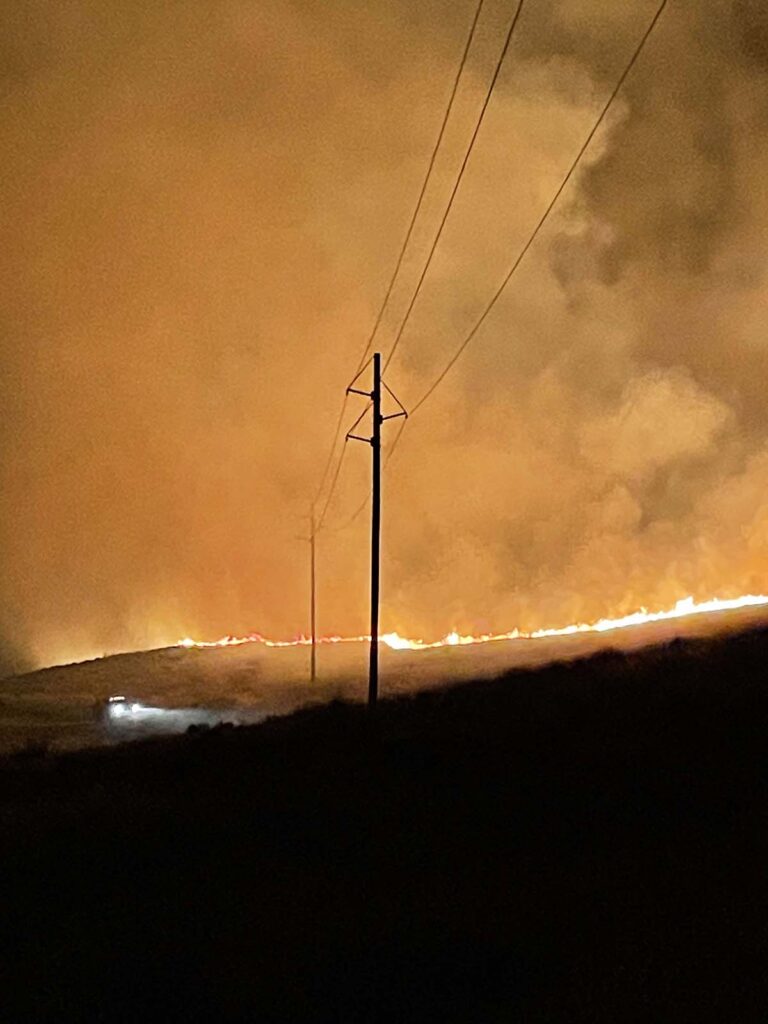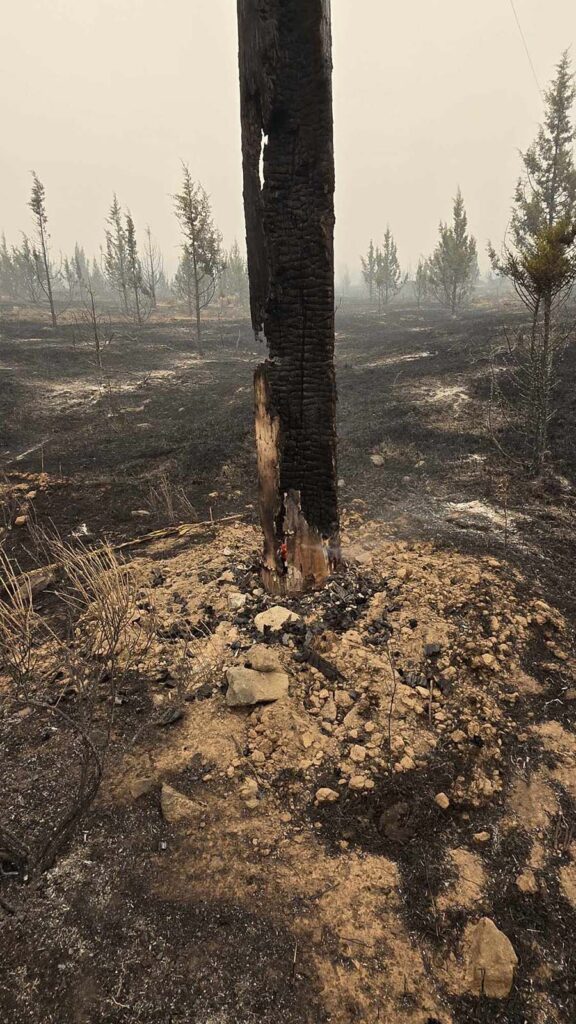
Despite facing massive wildfires that threatened its headquarters and employees’ homes, Columbia Power Cooperative—the smallest electric utility in Oregon—has kept power flowing to almost all of its 1,100 consumer-members.
General Manager Lisa Atkin credits heroic efforts by local and state firefighters, selfless actions by members who dug trenches with farm equipment to save their neighbors’ ranches from the flames, and tireless work by co-op staff who stayed focused on their jobs despite fears for their own homes and families.
“I am so fortunate and honored to work with this amazing team,” she said. “They’ve got the ability to dig in deep when it really counts and make incredible things happen. They really care about their community.”

The co-op’s eastern Oregon territory came under threat in mid-July, when a total of six wildfires swept into the area. Since then, four of those fires have converged into one huge blaze called the Battle Mountain Complex, which has consumed over 180,000 acres and is still not fully contained.
The tiny town of Monument—which has less than 150 residents and is the co-op’s headquarters—was poised to evacuate after the Boneyard Fire north of town jumped containment lines in mid-July and grew from 300 acres to 800 acres, local news reports said.
“It didn’t actually come into town, but it was on course to come with strong winds,” Atkin said. “Some people did leave under the Level 3 evacuation order, but we never actually evacuated our headquarters.”
“Our line crew was out protecting our wooden poles from the fires. Those of us who do dispatch work with the line crews were either in the office or working from home. I think all of us were impacted on a personal level. Our homes were threatened.”
Still, the staff was so busy that they were able to “put emotions aside” to stay on task, she said.
“We know that there are 1,100 people depending on us,” Atkin said. “These are people we know and care about whose homes, barns, cattle and livelihoods are threatened. We have a lot of older people and medically frail people among our members. It’s personal for us. You just kick into gear and do what you need to do.”

The co-op’s five-member line crew worked day and night to clear out any brush around power poles to make sure they didn’t catch fire, she said. The crew, which carries firefighting equipment on its work trucks, even extinguished flames from some poles that were already ablaze.
Only 15 to 20 members lost power during the crisis and the co-op had restored electricity to all but two homes as of Monday. Grateful members have been bringing food to the co-op staff to say thank you for keeping the power on.
“It was our line crew’s efforts that really saved our system,” Atkin said. “And the response from the community has been wonderful.”
While Columbia Power Cooperative’s story may be the most dramatic, it’s not the only electric co-op in Oregon that has been affected by wildfires, which so far have consumed more than 1.2 million acres throughout the state.
At least three other co-ops have been impacted, said Tucker Billman, government relations director at the Oregon Rural Electric Cooperative Association.
Oregon Trail Electric Cooperative in Baker City had to temporarily de-energize some lines to protect firefighters. But they have escaped significant damage to their systems so far, Billman said.
Columbia Basin Electric Co-op in Heppner reported losing about 40 power poles in the Lone Rock Fire, he said. That fire has burned more than 137,000 acres in north-central Oregon.
And the state’s fire season is just beginning.
“We’ve had new starts almost every day,” Billman said.
Just when it looked like things were calming down a bit in Columbia Power Cooperative’s territory, one of the fires has roared back again near Atkin’s home and the home of one of the co-op’s lineworkers.
“It makes you wary and keeps you on your toes,” Atkin said. “Fires of this intensity don’t go away overnight. We have to stay on guard and keep each other safe.”
Erin Kelly is a staff writer for NRECA.